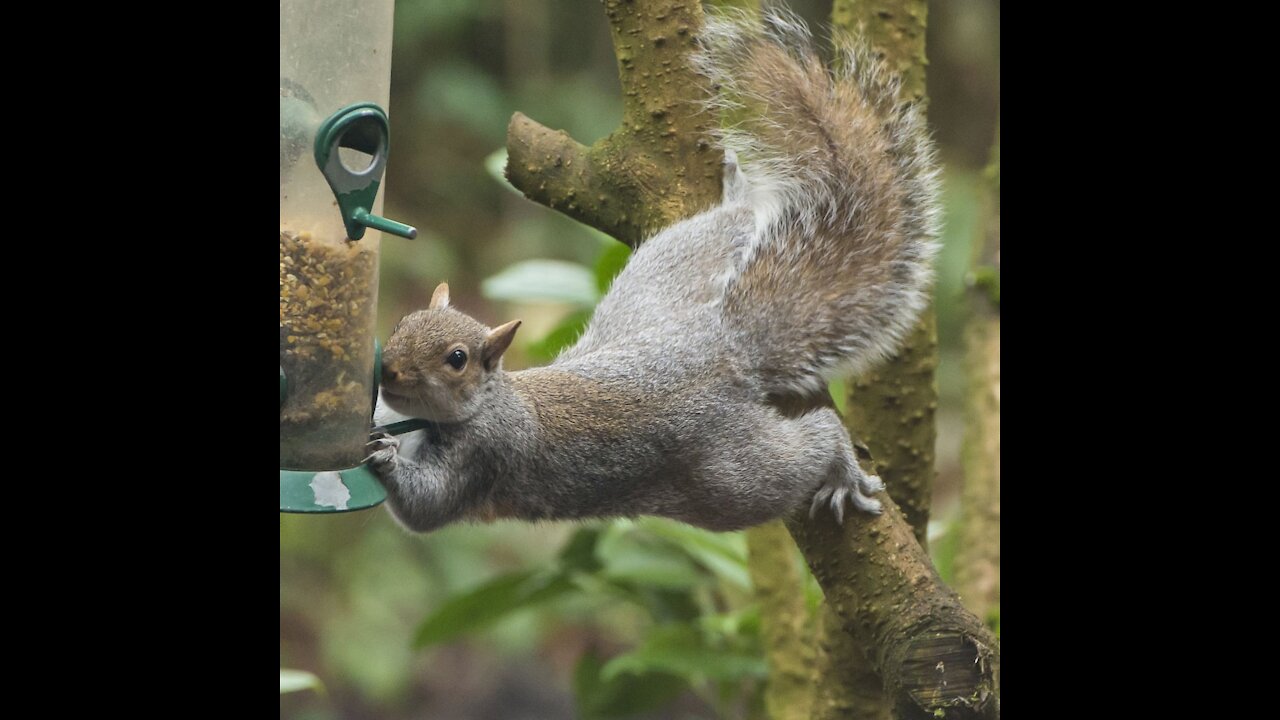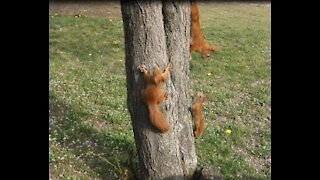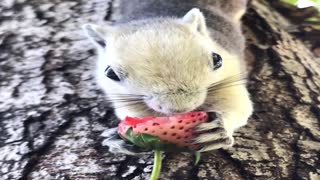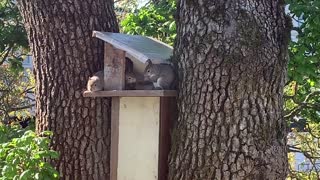Premium Only Content

grey squirrels, are they the tree rats? lets find out
How much do you know about Grey Squirrels. In this video I take a closer look at them and share everything you need to know about Grey Squirrels.
Grey squirrels are one of the most familiar and well known mammals in the UK, so it may be surprising that they are not native to this country. They were first introduced from north America in 1876 and gradually spread across England and wales. Unfortunately, as the grey squirrel colonized, they carried with them a virus that was fatal to the native red squirrels. They were also far better at remembering where they had stored food and could eat a much wider range of food than the reds. This eventually led to them going pretty much extinct throughout the southern and central UK.
A grey squirrels diet changes throughout the seasons and includes Acorns, bulbs, buds, fungi, nuts and roots. Occasionally in the spring and summer they will also raid birds nests for their eggs and chicks. They dont eat everything that they find straight away and will instead cache food throughout the autumn. This food helps them during the winter, when unlike a lot of small mammals they don't hibernate and fresh food may be in short supply.
Grey squirrels are active during the daytime only. Throughout the night they hide away in a nest made of twigs, bark, leaves and grass. This is known as a dray. These are sometimes inside the hollows of trees but can also be constructed exposed in the upper branches or even inside lofts, attics and barns.
It is in these drays that grey squirrels give birth to their young, from January to April. Each female will have between 2 and 8 young which are known as kittens, or kits. These are born hairless and blind and spend the first 7 weeks of their lives being fed milk by their mothers inside the dray. By the time they start to venture outside they are miniature versions of their parents, and after a further 3 to 4 weeks they are fully independent and begin to construct and use a dray of their own.
In the wild, the average lifespan of a grey squirrel is only 1 to two years but in extraordinary cases they can live beyond ten years of age. In captivity this is even higher with one squirrel living to be 23 and a half years old. Their main cause of death is collisions with cars, but they can also fall victim to domestic cats, starvation and increasingly to predation from the recolonizing pine marten.
No fact file about grey squirrels would be complete without at least a mention of their controversial reputation. Some people refer to them as tree rats and there are regular calls for both local and nationwide culls. There is an argument that culling them would give the native red squirrels a better chance of recolonizing and this has been shown to work on the isle of Anglesey. There the grey squirrels were completely eradicated and the population of reds went from less than 40 to more than 700 individuals. A second, and perhaps more widespread reason for calls to cull them is the damage that they can do to forestry plantations. It is estimated that grey squirrels cause more than £50million pound worth of damage to these plantations every year by stripping bark and killing saplings. Everybody seems to have their own opinion on the culling of grey squirrels, so please feel free to share yours in the comments down below.
-
 1:24
1:24
Evgenii90
4 years agothree squirrels are funny playing on a tree
32 -
 1:03
1:03
ViralHog
4 years agoHappy Tree Squirrels Munch on Fruit
345 -
 0:31
0:31
marnug
4 years agoBaby Squirrels
8 -
 0:42
0:42
CrittersGoneWild
4 years agoThese Squirrels Go Out on a Limb. Will they get what they...
396 -
 2:59
2:59
Today's The Day
4 years agoChipmunks and squirrels
99 -
 1:54:22
1:54:22
vivafrei
3 hours agoOstrich Farm UPDATE! And Live with Tyler Fischer Talking REAL Cancel Culture He is Experiencing!
137K15 -

Michael Franzese
1 hour agoAmerica’s Human Trafficking Crisis EXPOSED by Former Mobster
156 -
 LIVE
LIVE
Barry Cunningham
5 hours agoPRESIDENT TRUMP NEEDS TO STAND FIRM AND SHUT THE GOVERNMENT DOWN IF HE HAS TO!
1,720 watching -
 23:45
23:45
IsaacButterfield
12 hours ago $0.19 earnedThe Rise of Autism in Gen Z
1.47K9 -
 LIVE
LIVE
LFA TV
23 hours agoBREAKING NEWS ALL DAY! | THURSDAY 9/25/25
1,438 watching